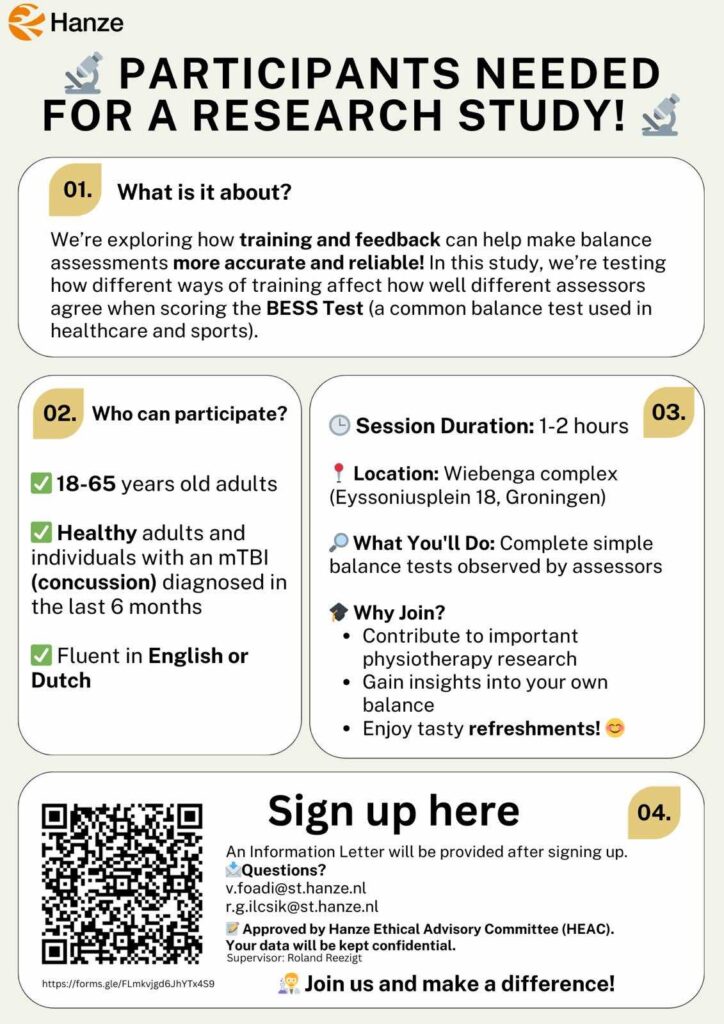Participants Needed! Help Improve the Reliability of the BESS Test
Improving the reliability of the BESS test
At Fysiotherapie Noorderbad, we are committed to advancing scientific research to enhance diagnostic and treatment strategies for our patients. That’s why I am very proud of my two students Gréta Ilcsik and Vina Foadi who are conducting a follow-up study on the reliability of the Balance Error Scoring System (BESS) test. This research builds upon the pilot study we supervised in July 2024, aiming to refine and validate this important assessment tool for mild traumatic brain injuries (mTBI) and concussions. This study is a follow-up study from the pilot study that was completed in juli 2024. The current study is being performed together with my esteemed colleague Roland Reezigt.
Why Research Matters
As a physiotherapy practice, we prioritize evidence-based treatment approaches. Research plays a crucial role in ensuring that the tests and interventions we use are both reliable and effective. The BESS test is commonly utilized to assess postural stability after a concussion, but its reliability has been questioned. By conducting this study, we hope to contribute valuable data that can improve concussion management and enhance patient outcomes. Our mission is to provide the highest quality care, backed by solid scientific evidence.
How This Study Aligns With Our Philosophy
At Fysiotherapie Noorderbad, we believe that staying at the forefront of scientific research allows us to offer the best possible care to our patients. We actively participate in and support studies that have the potential to improve diagnostic accuracy and treatment efficacy. By investigating the reliability of the BESS test, we are not only contributing to the academic field but also directly impacting clinical practice and patient well-being.
Who Can Participate?
We are currently looking for participants both with and without a history of traumatic brain injuries (TBI) to take part in this study.
If you are available on March 19th, 2025, in Groningen, the Netherlands, and are interested in contributing to this important research, please contact:
📧 Gréta Ilcsik: r.g.ilcsik@st.hanze.nl📧 Vina Foadi: v.foadi@st.hanze.nl
Participants needed:

Last update
